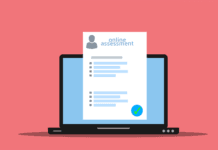In today’s digital age, data is everywhere. From the websites we visit and the social media posts we like, to the smart devices we use, vast amounts of data are constantly being generated and collected. But with this explosion of data comes the responsibility to use it ethically. Let’s dive into the world of data ethics and understand why it matters to everyone.
What is Data Ethics?
Data ethics refers to the principles and standards that guide the collection, analysis, and use of data. It’s about doing the right thing with data, ensuring that it is used responsibly and with respect for people’s privacy and rights.
Why Should You Care About Data Ethics?
Imagine if someone had access to all your personal information: where you live, your daily routines, your health records, and even your financial details. Without proper ethical guidelines, this data could be misused in ways that harm you. Data ethics ensures that individuals’ privacy is protected and that data is used in ways that benefit society, not harm it.
Key Principles of Data Ethics
- Privacy: Respecting an individual’s right to control their personal information. This means not collecting more data than necessary and keeping it secure.
- Transparency: Being open about what data is collected and how it is used. People should know what information is being gathered about them and why.
- Fairness: Ensuring that data is used in ways that do not discriminate against or harm any group of people. Algorithms and data practices should be designed to be fair and unbiased.
- Accountability: Holding organizations and individuals responsible for their data practices. If data is misused, there should be consequences.
Practical Examples of Data Ethics
Let’s look at some everyday scenarios to understand how data ethics plays a role:
- Social Media: When you sign up for a social media platform, you share personal information. Ethical platforms will clearly explain how your data will be used and give you control over your privacy settings. They won’t sell your information without your consent.
- Healthcare: Medical records contain sensitive information. Hospitals and clinics must ensure this data is secure and only accessible to authorized personnel. Ethical use of healthcare data can improve treatments, but misuse can lead to privacy breaches.
- Online Shopping: E-commerce websites collect data on your shopping habits to recommend products. Ethical sites will use this data to enhance your shopping experience without exploiting your preferences or selling your information to third parties without permission.
How You Can Practice Data Ethics
Even as individuals, we can practice data ethics:
- Be Informed: Understand the privacy policies of the apps and websites you use. Know what data you are sharing and how it will be used.
- Be Selective: Only share personal information that is necessary. Avoid oversharing on social media or online forms.
- Demand Transparency: Support businesses and platforms that are transparent about their data practices. If a company isn’t clear about how they use your data, think twice before using their services.
- Advocate for Change: Encourage organizations to adopt ethical data practices. Support legislation that promotes data privacy and holds companies accountable.
Data ethics is not just a concern for tech experts or big companies; it affects us all. By understanding and advocating for ethical data practices, we can help ensure that our personal information is used responsibly and that technology serves the common good. Remember, ethical data use is about respect, fairness, and responsibility—principles that benefit everyone in our increasingly digital world.


